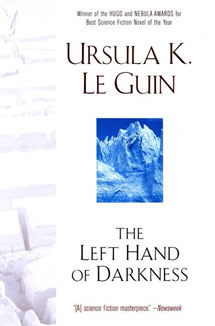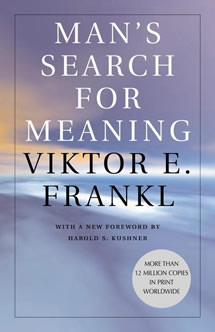Showing posts with label Classic Reads. Show all posts
THE GREAT GATSBY
Best Book Clubs
,
Best Book Deals
,
Best Book Sites and Apps
,
Classic Reads
,
Free Audio Books
,
Free Kindle Books
1 comment
:
BOOK REVIEW
PLOT SUMMARY
PLOT SUMMARY
This modernist novel of manners by F. Scott Fitzgerald is published by Scribner Classics, a division of the MacMillan Reference Library (but is licensed to other publishers and is in the public domain, but only in countries outside of the United States). This book is written for adults, yet it is often studied in high school during 11th grade.
PLOT SUMMARY
After graduating from college and serving in the first World War, Nick Caraway, the narrator of this story, gets a job as a bonds broker in New York City. He rents a bungalow outside of the city, on the less fashionable side of Long Island Sound called West Egg. His second cousin Daisy who lives with her husband, Tom, in East Egg is unhappy in her marriage, but she enjoys being rich. Daisy introduces Nick to Jordan Baker, a famous golf star, but Jordan has a problem with lying.
Nick travels to work by train. One day Tom introduces Nick to his mistress, Myrtle Wilson, who is married to a mechanic in the area. They go to the city on the train and end up at an apartment Tom owns. Nick meets the neighbors, and they all get drunk.
Nick is eventually invited to one of the many parties thrown by his neighbor Jay Gatsby. Nick finds Jordan at the party and decides that he doesn't mind her dishonesty, even though he is a very honest person. Before he becomes involved with her, Nick decides he must first break off his relationship with a girl back home.
Gatsby, as everyone calls his neighbor, changed his name from James Gatz when he was 17. He is extremely wealthy, and there are rumors about his background, but no one knows exactly where he's from or how he got his money. Nick later learns that Gatsby worked for Dan Cody, who made millions, and he was promised $25,000 at the man's death. Gatsby never received a penny, though, because Cody's wife finagled the situation. The story hints that Gatsby is a bootlegger.
Gatsby throws extravagant parties most nights during the summer. Rich and famous people come from all over the state to attend. Gatsby's parties are so well known that one day a reporter appears on his porch and asks for a comment. The man doesn't know exactly who Gatsby is or what he does but, because his name is bandied about by all the right people, the reporter believes he's on the edge of something newsworthy — though he has no idea what that might be.
Gatsby and Nick slowly get to know each other. Jordan tells Nick how Gatsby used to know Daisy before she married Tom. Gatsby is still in love with Daisy, and he asks Nick to invite Daisy over to Nick's house for tea. When Nick does, Gatsby and Daisy slowly become reacquainted, first at Nick's house and then at Gatsby's. Gatsby has waited five years to see Daisy again; he has to adjust his thoughts to the reality of her presence.
Daisy and Tom are invited to one of Gatsby's parties. Daisy is fascinated by it, but she doesn't seem to have a good time. Soon after, Gatsby no longer throws parties and lets his staff go. He hires a tougher, smaller crowd to take care of his house so Daisy can visit in the afternoons.
Nick and Gatsby are invited to Tom's house one afternoon. When Tom leaves the room, Daisy kisses Gatsby and says she loves him. Jordan says that Tom is talking to his mistress, Myrtle. In the midst of this, Daisy and Tom's daughter is introduced to the guests.
Later, Nick, Gatsby, Tom, Jordan and Daisy go for a drive to the city. When they fill up with gas, Nick learns that Mr. Wilson (Myrtle's husband) is upset with his wife. He thinks she has been having an affair, but he doesn't know with whom. At the same time, Tom realizes that Daisy has a life beyond her life with him. He doesn't like this idea.
LONDON
London. Michaelmas term lately over, and the Lord Chancellor sitting in Lincoln's Inn Hall. Implacable November weather. As much mud in the streets as if the waters had but newly retired from the face of the earth, and it would not be wonderful to meet a Megalosaurus, forty feet long or so, waddling like an elephantine lizard up Holborn Hill.London. Michaelmas term lately over, and the Lord Chancellor sitting in Lincoln's Inn Hall. Implacable November weather. As much mud in the streets as if the waters had but newly retired from the face of the earth, and it would not be wonderful to meet a Megalosaurus, forty feet long or so, waddling like an elephantine lizard up Holborn Hill.London. Michaelmas term lately over, and the Lord Chancellor sitting in Lincoln's Inn Hall. Implacable November weather. As much mud in the streets as if the waters had but newly retired from the face of the earth, and it would not be wonderful to meet a Megalosaurus, forty feet long or so, waddling like an elephantine lizard up Holborn Hill.London. Michaelmas term lately over, and the Lord Chancellor sitting in Lincoln's Inn Hall. Implacable November weather. As much mud in the streets as if the waters had but newly retired from the face of the earth, and it would not be wonderful to meet a Megalosaurus, forty feet long or so, waddling like an elephantine lizard up Holborn Hill.London. Michaelmas term lately over, and the Lord Chancellor sitting in Lincoln's Inn Hall. Implacable November weather. As much mud in the streets as if the waters had but newly retired from the face of the earth, and it would not be wonderful to meet a Megalosaurus, forty feet long or so, waddling like an elephantine lizard up Holborn Hill.London. Michaelmas term lately over, and the Lord Chancellor sitting in Lincoln's Inn Hall. Implacable November weather. As much mud in the streets as if the waters had but newly retired from the face of the earth, and it would not be wonderful to meet a Megalosaurus, forty feet long or so, waddling like an elephantine lizard up Holborn Hill.London. Michaelmas term lately over, and the Lord Chancellor sitting in Lincoln's Inn Hall. Implacable November weather. As much mud in the streets as if the waters had but newly retired from the face of the earth, and it would not be wonderful to meet a Megalosaurus, forty feet long or so, waddling like an elephantine lizard up Holborn Hill.
Sample Post 5
The Left Hand of Darkness by Ursula K. Le Guin

Not only is The Left Hand of Darkness a masterpiece of ideas, invention, and language, but it takes conventional assumptions about gender and grinds them into a fine, powdery dust. Published in 1969, the book won both the Hugo and Nebula Awards and went on to become one of the keystones of science fiction. It tells the story of an ethnologist sent to another planet, but it is Le Guin's powers of imagination that turn The Left Hand of Darkness into something truly transcendent. – Mary Jo S.
Lolita by Vladimir Nabokov

Why should everyone read a book about a pedophile's obsessive and frankly gross relationship with a little girl? Because if you are a reader — a lover of words, puns, witticisms, metaphors, and allusions — Lolita is a literary masterpiece that can't be passed over in a fit of queasy morality. Humbert Humbert, the novel's unreliable narrator, knows that he's a despicable pervert and yet the reader can't help enjoying him as he surveys post-war America and little Lolita with the droll, cynical eye of a European expat adrift in a tawdry nation, and stuck irrevocably — and irredeemably — in the memory of an adolescent love affair. Please, ignore the critics: Lolita isn't a morality tale and it isn't a love story. It's an unabashed look at a deviant mind written in some of the most deft and beautiful English ever published. – Rhianna W.
Man's Search for Meaning by Viktor E. Frankl

Man's Search for Meaning is like nothing you've ever read before. The first half of the book depicts Dr. Frankl's four years losing everything in concentration camps — a description so hellish, it leaves you desolate. Shattered by his Holocaust experiences, Frankl struggles to survive after he is freed. In the second half of the book, Frankl shows how that period of his life informs and develops his theory of "logotherapy" — he asserts that life is about finding meaning, what is meaningful to each individual. As excruciating as his experiences are, Frankl's theory is full of love; he is able to find redemption for himself and others. This book is beautifully life-changing. – Dianah H.
Subscribe to:
Posts
(
Atom
)









